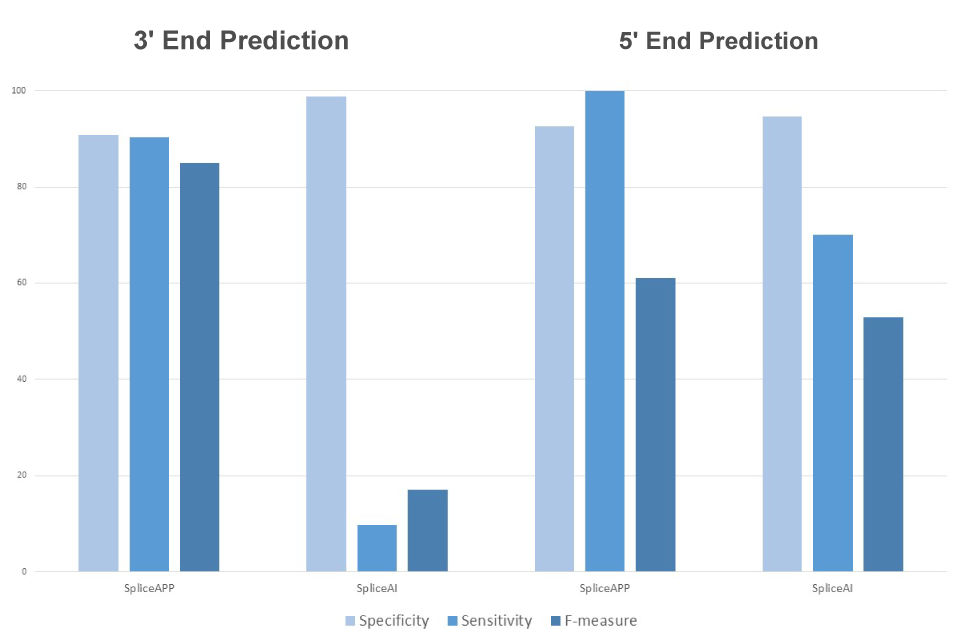This statistical model provides identity and ranking of biological features that determine splicing, which serves as transferable knowledge for future studies, and out-performs the benchmarking predictive tool. Our models elucidate the mechanism of splicing response of intronic variants, which classify disease-associated splicing variants for the promise of precision medicine.

Three predictive models of SpliceAPP achieve high sensitivity and specificity on test datasets. The modeling results suggest that the splicing regulation at the 3' end of introns is more complex than the 5' end.

